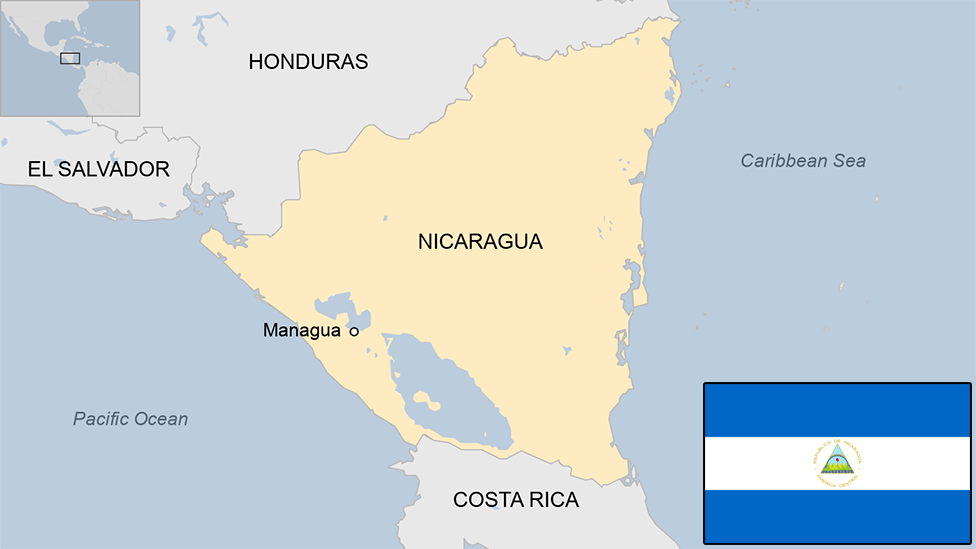Nicaragua cloud forest 'under siege' by illegal loggers
- Published
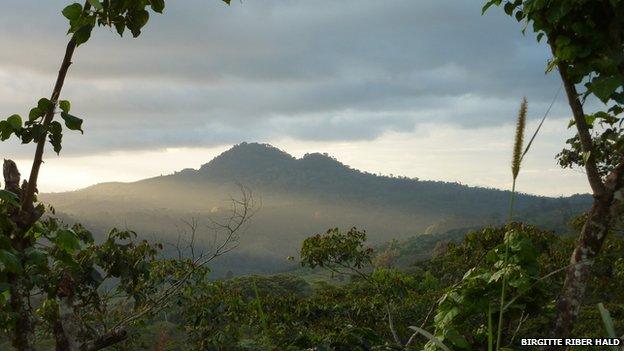
The Bosawas Reserve is a critically important rainforest but native people say it is being destroyed by "colonists"
A famed rainforest in Nicaragua is under growing threat from illegal loggers, say indigenous leaders.
The Bosawas Biosphere Reserve is Central America's largest tropical forest with clouds constantly drifting over the hilly terrain.
But the Mayangna and Miskito people who live there say 30,000 hectares a year are being deforested by "colonists".
They are calling on US president Barack Obama, who is visiting the region, to support their battle.
Described by the United Nations as a global biological treasure, external, the reserve is located on the border between Nicaragua and Honduras and teems with wildlife.
The two million hectares are said to be home to 150,000 insect species, rare jaguars, eagles and crocodiles as well as the world's last populations of Baird's Tapir, external and the Central American Spider Monkey.
Landless invaders
The Bosawas reserve also overlaps the homes of indigenous communities who have been there for centuries, living by hunting and fishing.
The Nicaraguan government recognised the full legal title of the Mayangna to their lands in 2007.
Since then, they say they have been subject to what they term an "invasion" by landless people from other parts of the country.
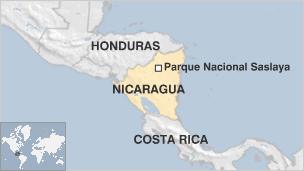
The Saslaya National Park is found within the Bosawas Biosphere Reserve
They claim to have documented 11,500 "colonists" who have deforested around 150,000 hectares since 2009.
Arisio Genaro, president of the Nacion Mayangna, told BBC News that this was an extremely serious threat to the future of the forest.
"The problem is that in the parts of our territory that we have zoned to be conservation forest, they are being invaded by settlers."
"Even we the Mayangna don't touch these forests, that's where the animals we hunt reproduce. If they destroy that, they will destroy our people."
"The world needs to know that we are in crisis because of our efforts to defend the natural resources that we survive on," he added.
Scientists are also concerned that the struggles between natives and colonists will have a detrimental impact on the region's biodiversity.
Leading researcher, Dr Thomas Lovejoy, who first coined the term back in 1980 said that protecting the Bosawas reserve was critical.
"Nicaragua has one of the three great blocs of remaining tropical rain forest in Central America," he said.
"As a consequence, the struggle to protect this precious and unique part of biological diversity is of hemispheric, indeed global, importance."
Violent outbreaks
The Mayangna number around 40,000 people and have made numerous representations to the Nicaraguan government. But according to community leaders, not enough is being done to protect their rights.
Tensions between the in-comers and the natives have spilled over into violence leading to the death, external of a Mayangna leader on 24 April.
Mr Genaro believes the authorities are afraid of the political consequences of supporting the native peoples.
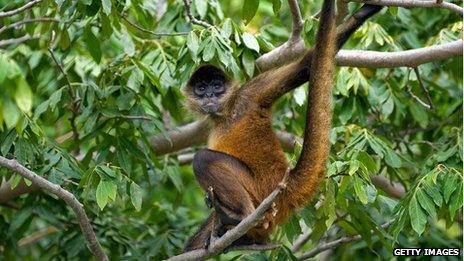
Critically endangered spider monkeys and other rare species continue to live in the Bosawas reserve
"It seems they don't want to do this because they are worried about losing votes," he said.
"There are many invaders. They think that if they take strong action to protect our property they will lose political support."
His views are echoed by Taymond Robins, who is also Mayangna and organises the defence of the forests.
"We are very sad because they are contaminating our rivers and it is affecting the climate in our areas," he said.
"We are losing land, and we are losing our cultural values. We are very worried."
The invaders are not all just poor, landless peasants he said.
"Really these people are land speculators. They come in, they burn the forest and put in pasture, then sell it and move to another area."
The Mayangna are calling on President Obama, who is meeting with regional leaders in Costa Rica, to support their battle against invaders. They say the forest is critical for the whole world and not just Nicaragua.
Next week, indigenous peoples from all over the country will bring their demands for better protection for their forests to the capital Managua.
"We are going to have a march here in Managua so that the government can see it has a responsibility to comply with the laws and the property rights of the country," said Mr Genaro.
"We believe that if there is no intervention, there will be no Biosphere reserve in five to 10 years."
Follow Matt on Twitter, external.
- Published26 January 2013
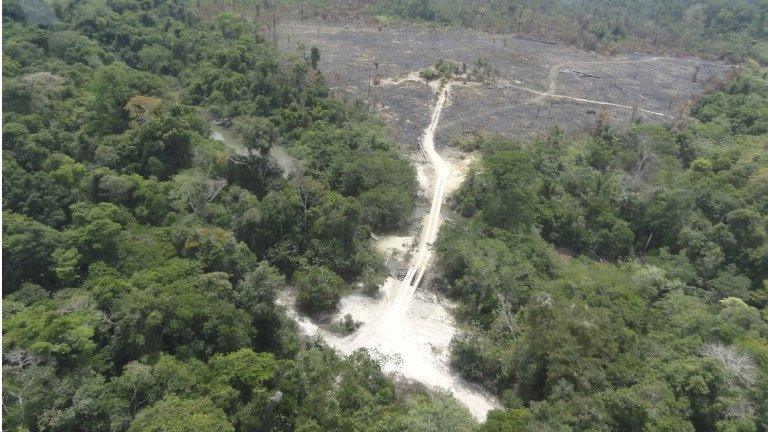
- Published19 April 2013
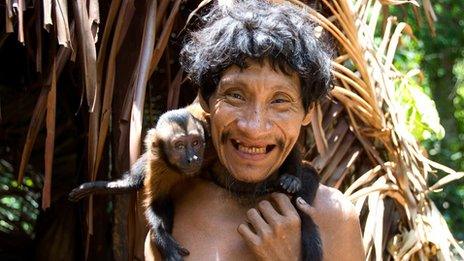
- Published31 December 2024
